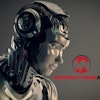I like my glasses. I happen to like the way that they look on my face. I also like the way that they allow me to observe the world with clarity and, though fragile, I would never think to replace them with contacts, laser eye surgery, or a dashboard.
I’ve worn glasses since I was in the third grade. I was an early adopter, in part, because my mother was an anxiety-riddled hypochondriac whose demand for ongoing medical attention trickled down to her three sons. My doctor even joked that he could create a small skeletal band by piecing together my many X-rays.
While much of the perceived need for vision enhancement may have been expedited by my mother’s belief that I’d be blind before I was 30, one small problem remained: every object had more of a blurred haze than a crisp outline. I had trouble seeing the blackboard and my teachers didn't understand that I loved school and it was my eyes that hated the institution.
I visited the optometrist and took the battery of torturous tests: the puff (glaucoma), the eye chart (general blindness), and the multicolored circles that formed multicolored numbers all within one large multicolored circle (color blindness). The rigmarole was madness, and the doc had exceptionally dry hands for a medical professional.
I was glaucoma free, but according to the eye chart my visual acuity was subpar. I also faked color blindness for the better part of my youth, but that is a story for another time. The doc pulled me into the back room, and set me up behind the phoropter -- the instrument of many lenses that looks like the face of a poorly conceived DC villain.
After much indecision over which lens was more clear, I was given my prescription, and chose a silver set of rims that had enough metal on them to fill every cavity formed in 1990. Note to kids: Do not choose anything as a result of parental influence. Not only did the silver specs have an uncanny resemblance to the black plastic on my father’s face, but they would later be referred to as an early harbinger of my social death. Second note to kids: You’re all evil.
My four eyes became a part of whom I was, my style (and/or lack thereof), my thickening metaphorical skin (and associated humor as a defense mechanism), and a source of rebellion. You see, long before hipsters ruined glasses, but aided selection, you had to shop the women’s racks if you sought selection. Forgive me for wanting a lens smaller than a Coke can, in a shape other than round -- or the increasingly popular round with two metal brackets across the bridge of your nose.
I gave contacts a shot, but I must’ve had the shakes long before alcohol or caffeine entered my life, and the prospect of laser eye surgery still frightens me. Too many horror stories (anything greater than one), and man had already designed a solution that wasn’t an easy target for news networks. The only detriment was my propensity, as a child, to lose a pair every six months; and the subsequent week of blindness I was forced to endure due to the financial ramifications my family suffered.
Now that hipsters are threatening to sabotage my niche and science is threatening to render it obsolete, Google has developed the death knell. Google wants to put a smartphone on my face.
Google’s Project Glass, which will inevitably be called Google Glass, is a futuristic Internet-connected pair of glasses. According to the promotional video that tore through cyberspace, Google Glass (the revolution begins) is a pair of smart glasses with a dashboard that alerts the user to anything from a text message to an obstacle in his/her current path.
The example features an alert to a problem in the New York City subway which causes the commuting Google Glass model to change his path. Google Glass recognizes the problem, alerts the user, and draws a new path to his destination -- all before his eyes -- literally.
The video fails to show how focus shifts from the sidewalk to the dashboard. Even if the information is displayed translucently before the user’s eyes, when the focus shifts, navigation would become treacherous. If you don’t believe that we are susceptible to such gaffes, I invite you to read about the girl who fell down a manhole while texting. We’re an innovative lot, but some sciences have bred a new race of super stupid.
As I watched the video, I recognized how dangerously close we are to living this augmented reality. At CES 2012, Samsung featured a transparent smart window with many of the same features that Google has teased. I gladly toyed with the idea of installing smart windows into my home as I tinkered with Samsung’s “hands-off” display. I envisioned holding a morning cup of coffee and standing before the window to get up to date on world news.
One of my smartphone’s many benefits includes the ability to set it down and take a break to see the world. This would be lost if I required the same display to observe the world in between marathon Words With Friends sessions with my female Aussie nemesis.
Is anyone else concerned about the technologies that have metaphorically blinded us to the world? Google, always the innovator, has rendered the metaphor obsolete and plans to actually blind you to the world.
Thoughts? Email [email protected].






















